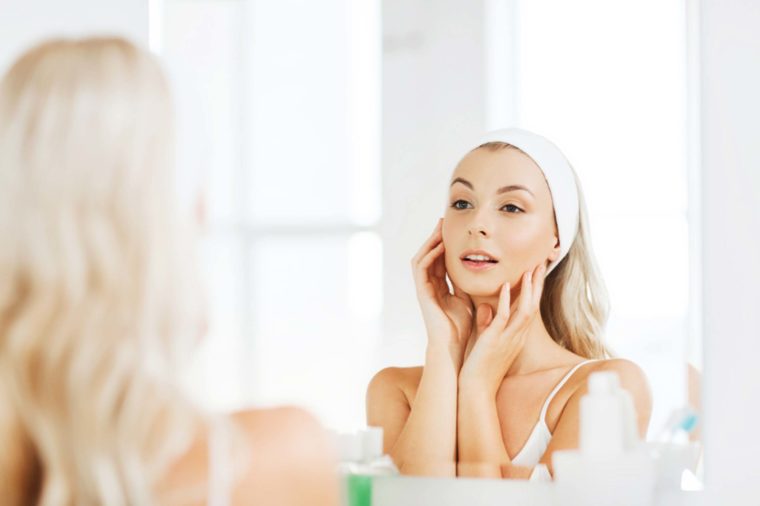You’ve seen ominous-looking black charcoal products in skin care and even dental products. (It’s even been used in ice cream!) Activated charcoal has gotten a lot of media attention, but some experts aren’t convinced it lives up to expectations.
Exposing regular charcoal to high temperatures and a gas such as oxygen makes it develop more pores, turning it into “activated charcoal.” Those pores, plus the carbon in it, attract substances and soak them up like a sponge. Doctors use activated charcoal to remove toxins from people who have overdosed, but it might have some beauty uses too.
The idea is that if activated charcoal can attract toxins in the stomach, it can do the same for your skin. Theoretically, it could act like a magnet to remove the oil and dead skin cells clogging your pores, says Ivy Lee, MD, a dermatologist based in Pasadena, California, and assistant clinical professor of dermatology at UCLA. “If it purifies toxins in our GI tracts it will probably purify toxins on our skin as well,” she says. “The tough thing is, there’s not evidence for this. There’s no scientific evidence that it purifies the skin.” Dr. Lee says she wouldn’t rely on charcoal to clear up your acne, but it could be worth a try if a gentle cleanser isn’t working for you.
For instance, activated charcoal could be a good middle ground between gentle cleansers and harsh acne treatments. Heavy-duty zit medications could leave your skin parched and flaky, but activated charcoal isn’t as likely to dry your skin, says board-certified dermatologist Sejal Shah, MD, FAAD, contributor for RealSelf.
“Prescription-strength retinoids are fairly drying, and charcoal may not be as drying as something like that, or even some over-the-counter retinoids,” she says. After all, charcoal will strip away some oils, but not as many as a harsh chemical would, says says board-certified dermatologist Kally Papantoniou, MD, FAAD.
If you do use charcoal for acne, don’t expect immediate results. Like any product, it might take a couple weeks, or even months, before your skin gets much better, says Dr. Papantoniou. Plus, even if activated charcoal leaves your face shine-free at first, your skin will continue producing oil throughout the day, says Dr. Shah, so you won’t be able to give up your blotting paper for good.
In addition to targeting acne and oil, charcoal cleansers usually have a gritty texture acts as an exfoliant. For most people, that’s fine a few times a week—max—but overdoing it could actually make your skin worse, says Dr. Shah. “If the skin senses it’s too dry, it will produce more oil,” she says.
In fact, grainy charcoal might not be your best bet, even for that occasional exfoliating, says Dr. Papantoniou. You can exfoliate your skin two ways: with physical scrubbing or chemicals. In general, chemicals will be gentler on your skin, says Dr. Papantoniou. “When scrubbing, you’re just getting the superficial top layer off, which can aggravate things,” she says. You might irritate the area, creating light brown or pink spots where the inflammation is. Exfoliating chemicals like glycolic acid or salicylic acid, on the other hand, actually even out your skin tone while removing the dead cells.
Just like how coarse charcoal can scrub your skin, some products say the black paste could actually whiten teeth naturally by scrubbing away stains. Surface stains on your teeth might be no match for activated charcoal—but neither is your enamel, says American Dental Association dentist Genaro Romo, DDS. “The enamel on your teeth is the white part, the glossy kind of porcelain look that makes your teeth whiter,” he says. “When you take something abrasive, you wear away your enamel, and it never comes back. Now your teeth start to look dull, darker, yellower.” He recommends using whitening toothpaste with a soft toothbrush, which will get rid of pesky coffee stains without hurting your enamel.
Even though it’s far from being a miracle product, activated charcoal could be a good option for anyone looking for a more natural skin-care regimen. Just keep in mind that even natural products can irritate your skin, says Dr. Shah, and they won’t necessarily be as good as the products your dermatologist prescribes. “Yes, active charcoal is great because there is a very natural element to it,” she says, “but by the same token, if you have very severe acne, you’re not necessarily doing yourself a service by not seeking out potentially more effective treatments.”












